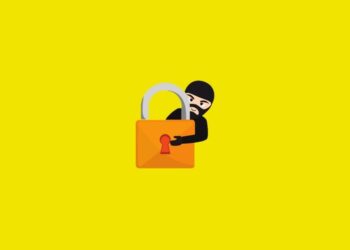When it comes to password management, common sense can sometimes be overshadowed by human nature. Despite our best intentions, we often fall into patterns that increase vulnerability to data breaches and weaken our cybersecurity. Passwords are the lifeblood of online activity. With all that is available on the internet, it’s possible to have tens if not hundreds of sites to which you need credentials for. If you put a great deal of your business online, the risk potential is even greater.
Strong password practices go a long way toward protecting personal and company info while making your passwords safer and easier to create, store, and recall. Unfortunately, password strength isn’t enough – you also need to create unique uncrackable passwords to minimize your exposure to various cybersecurity risks. The need for uniqueness makes it surprisingly complicated to keep track of passwords for all your accounts and maintain access to them on multiple devices.
Here are some ingenious tips and tricks to help thwart malicious actors seeking unauthorized access to your sensitive accounts.
1. Reverse words or phrases
By reversing words or phrases in your password, you can add an extra layer of complexity. For instance, instead of using “security”, consider reversing it to “ytiruces” to make your password harder to decipher. This technique makes it harder for attackers to guess your password even if they try common phrases.
2. Use acronyms and abbreviations
Consider using acronyms or abbreviations for phrases that are meaningful to you but will not be easily guessable by others. For example, you could use the first letter of each word in a memorable phrase or sentence to create a password, so “ILoveToRunEveryDay” could become “IL2RED.” Add symbols and numbers and mix up lower and upper case letters to strengthen your password even more.
3. Add misspellings and substitutions
Introduce intentional misspellings or substitutions of characters into your passwords to increase their complexity. For example, if there’s a word you often misspell, consider using this in your password. This technique adds an extra layer of security by making your password less susceptible to dictionary-based attacks.
4. Develop a formulaic approach
Develop a formula or pattern for creating passwords that you can easily replicate across multiple accounts while still ensuring uniqueness. For instance, you could combine elements such as your favorite color, a memorable date, and a special character to generate a series of passwords. By following a consistent formula, you can create strong and memorable passwords for different accounts without sacrificing security.
5. Double up on numbers
Doubling or even tripling the numbers you include in your password can significantly bolster its strength. For example, if you intend to use the number 5, consider doubling it to 55 or even tripling it to 555 for added security. This technique increases the complexity of your password and makes it more resistant to brute-force attacks.
6. Utilize passphrases for increased memorability
Consider creating a passphrase by stringing together multiple random words or phrases. Passphrases offer increased length and complexity, making them more resilient to brute-force attacks while remaining easier to remember for the user. For example, a passphrase like “purple-umbrella-dragon-forest” is both memorable and secure. Additional passphrase examples:
- Gleaming-oceanic-zebra-paradise
- Stellar-moonlight-cascade-wonder
- Enchanted-rainforest-serenity-bliss
Just make sure not to use words that would work together as a sentence – for example, ‘MyNameIsBeth’ or ‘IAmATeacher’.
7. Avoid using dictionary words and common phrases
Steer clear of using common dictionary words or phrases in your password. Hackers often employ sophisticated algorithms that can swiftly crack passwords based on known words or predictable patterns. Instead, opt for a combination of random characters, numbers, and symbols to create a password that is truly unique and secure. Uncommon dictionary words that are hard to guess that could be added to your password include serendipity, quixotic, and effervescent. The rarer the word, the harder it will be to crack. Combining several rare words will make your password even more secure.
8. Incorporate emojis
To enhance the complexity of your password, consider incorporating emojis. These symbols not only add a unique touch but also increase the difficulty for hackers attempting to crack your password. For example, a password with a smiley face in it is much more resilient than a simple word or phrase.
Conclusion
Passwords are an important line of defense for your data. Making secure, complex, unique and impersonal passwords can be done by focusing on randomizing each password for each account. By incorporating these passphrases and uncommon dictionary words into your password creation process, you can significantly enhance the security of your accounts and protect your sensitive information from cyber threats.


































































































































































































